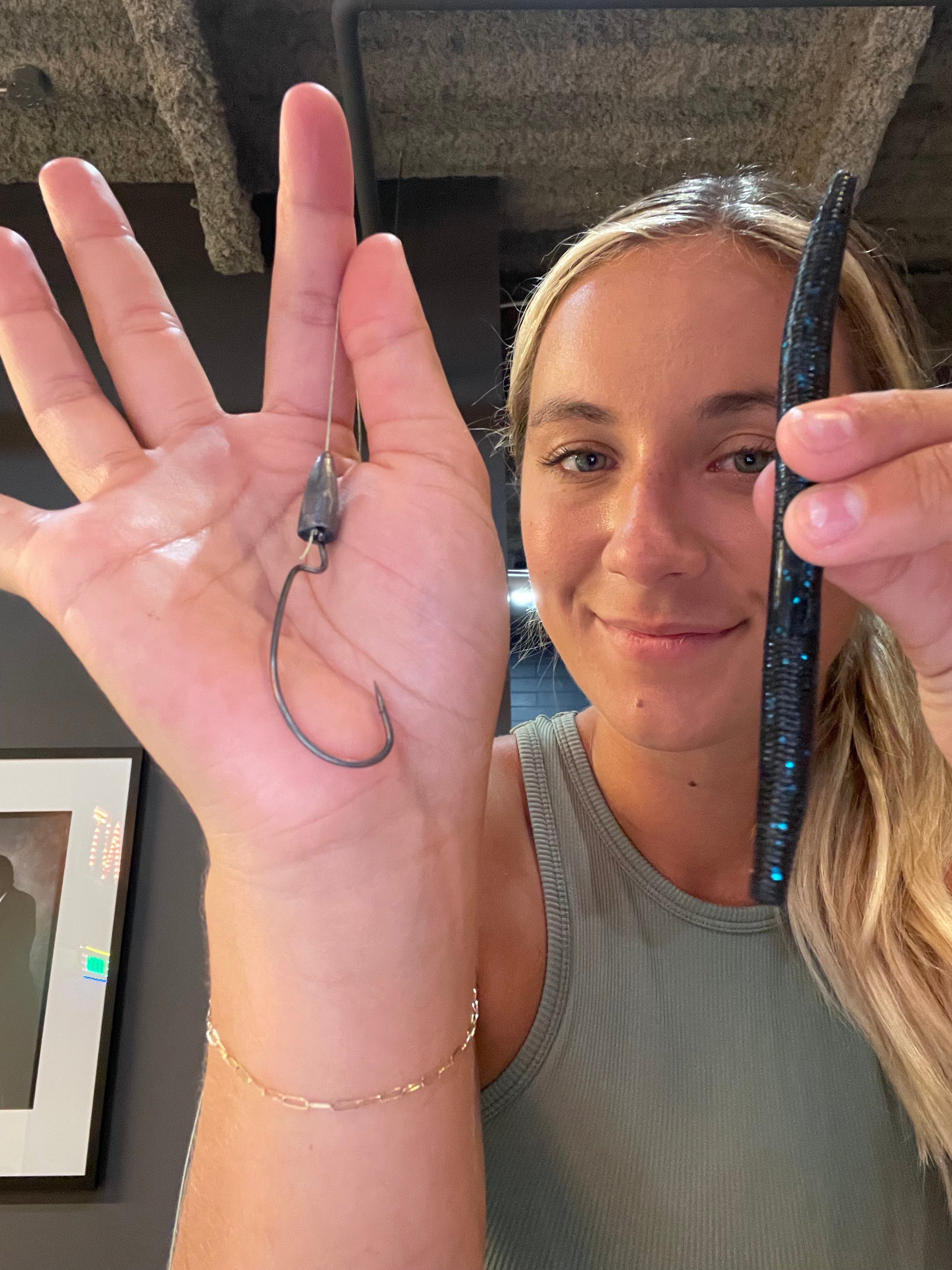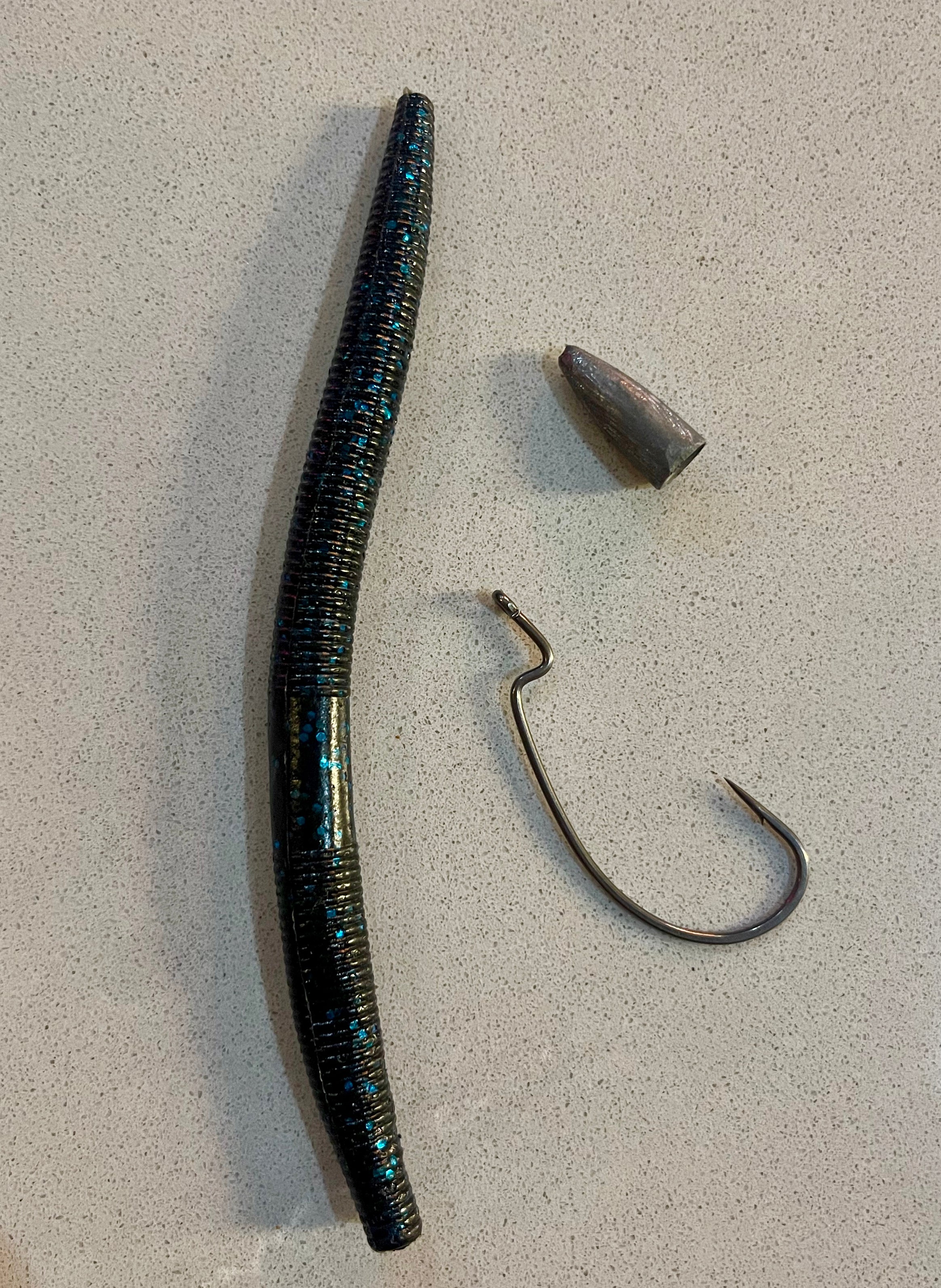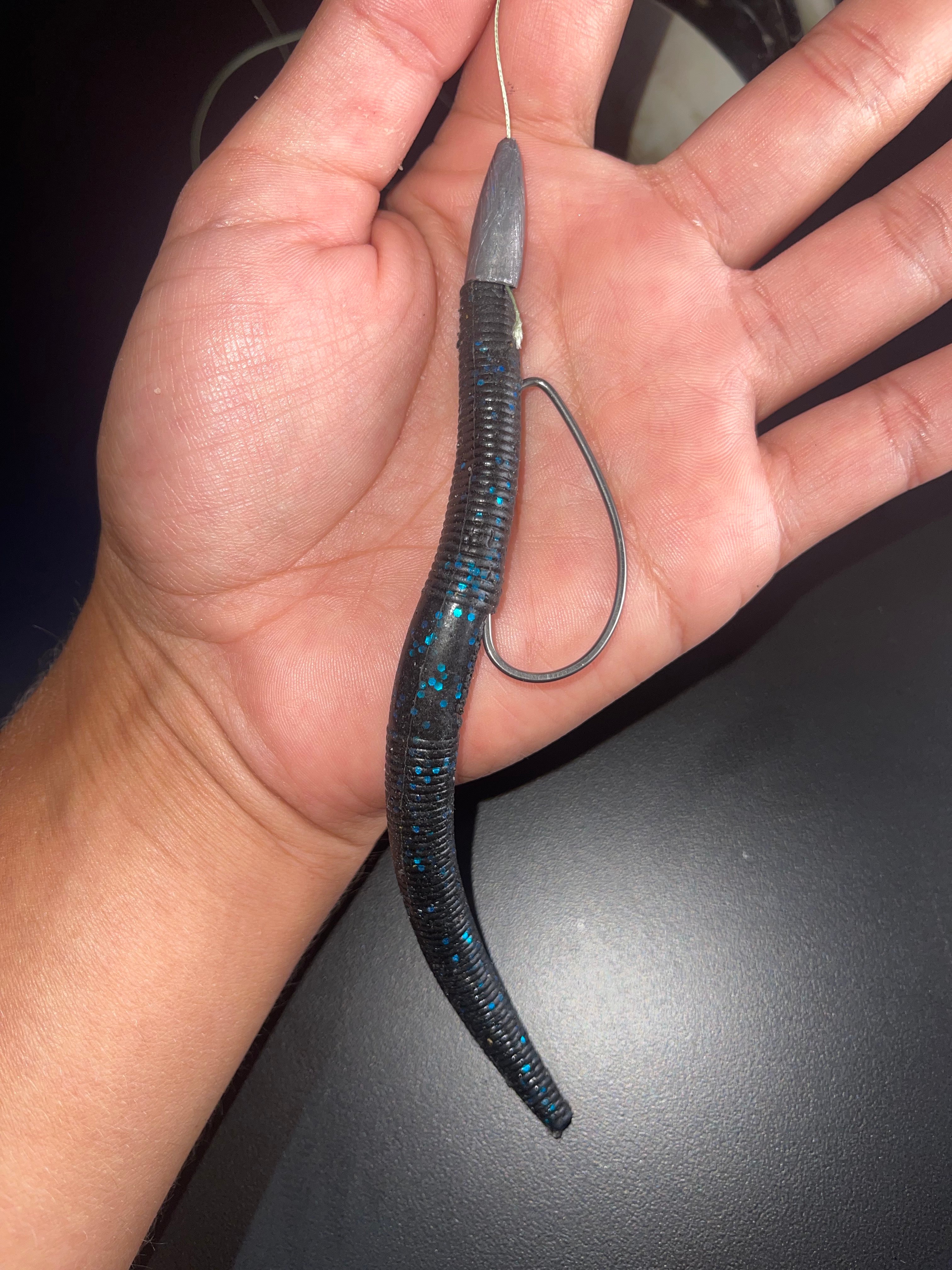Tackle Tips: The Texas Rig

Welcome to Tackle Tips, where I am going to share with ya'll a thing or two about fishing weekly, which is mainly for beginners. I am not a professional, but I do fish my ass off and watch a lot of Youtube videos, so I'm going to share with ya'll what I have learned!
The Texas Rig
The Texas rig is an extremely versatile and quick rig to set up. It can be fished slow & into heavy cover, since it remains weedless (will not get hooked onto branches / weeds). I flip and pitch this bait onto grass edges, fallen trees, brush, and other types of structures. Why fish over structure? Fish like cover, because this gives them a place to hide and ambush their prey, especially in shaded areas. When reeling the bait in I can reel it in at a slow and consistent speed or drag / bounce it off of the bottom of the pond. The retrieval is usually steady.
The Set Up
All you need is a bullet weight, offset worm hook, soft plastic and your rod and reel.
While fishing, the majority of the time I am using a 1/4 ounce bullet weight. Typically the weight is dependent on the depth and thickness of the brush / weed line. For example if I am fishing in thicker weeds, I will use a heavier weight. I've done my research and it appears that color of the weight does not matter.

In the picture above I have a berkley powerbait worm, which is a type of soft plastic. I use a variety of soft plastic when fishing the Texas Rig. That is the beauty of this set up. Sometimes I like to throw a craw and other days maybe I am feeling a tube. There are an abundance of set ups, which typically depends on the water clarity, depth, weather, etc.

The video above helps give a better visual on how to make the soft plastics weedless. For a refresher, when hooking into the bait make sure to insert the hook into the tip of the bait & push the hook through at the bend or approx. 1/4 of the way down. Next pull the hook through the bait, rotate the hook, and embed the point into the hook. Voila!! We have ourselves a Texas rig!!


